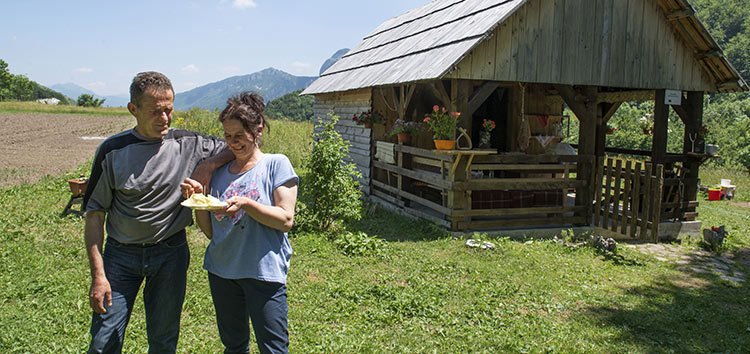- Policy reforms will help tackle longer term impact
- Keeping agribusiness sector afloat is vital during pandemic
The European Bank for Reconstruction and Development (EBRD) and the Food and Agriculture Organization of the United Nations (FAO) are stepping up their cooperation with a US$ 3 million advisory technical cooperation package to help the agrifood sector in the EBRD’s regions to overcome the challenges of the coronavirus pandemic.
The package will also help to strengthen the longer-term resilience of the food system, including production, processing and transport. It includes immediate technical and policy assistance as well as strategic inputs to support the transformation of food systems after the crisis. The initiative will look at investment options for urban food, low or zero carbon value chains and more efficient distribution systems, including e-marketing.
Jean-Marc Peterschmitt, EBRD Managing Director, Industry, Commerce and Agribusiness, noted that the initiative complemented the €750 million in new loans the Bank had already committed to the agribusiness sector since the beginning of 2020.
“In addition to our regular support for investments in agribusiness,” he explained, “we have been active in providing short-term liquidity and working capital to the sector under the EBRD’s Solidarity Package. With the assistance provided by FAO, we will also offer technical guidance to local agrifood companies in the economies where we invest, to help them bounce back faster and adapt to post-Covid realities.”
Keeping agrifood chains flowing
The pandemic has changed the way people buy and consume food. Fear of contagion has meant fewer visits to food outlets, with more people turning to e-commerce and online orders.
The collapse in tourism has also put a big dent in the hospitality industry, altering the demand for certain food products.
Agribusinesses and producers need to adapt to these evolving demands. At the same time, they need to adapt to new sanitary standards, labour shortages and logistics constraints.
According to FAO Investment Centre Director Mohamed Manssouri, as companies adjust to Covid-19, digital technologies, the advanced use of big data, food safety, food traceability and a focus on local foods will become more prevalent.
“Our main goal is to make food systems work under Covid-19 and avoid any unnecessary disruptions to agrifood supply chains by enhancing market transparency and ensuring proper dialogue between private players and local authorities. We also need to help the sector accelerate its transformation towards more resilient and sustainable business models, including low or zero carbon options, more inclusive solutions and more diversified sourcing from global supply chains as well as shorter supply chains, when possible.”
Building resilience
FAO and the EBRD are long-standing partners and responded to the coronavirus crisis with new initiatives. For example, they both stepped up their interactions with grain producers and traders in Serbia and Ukraine to establish operational protocols and develop practical recommendations for grain silo operations under Covid-19.
Under the technical support package, the two institutions aim to help Tunisia’s olive oil sector put all Covid-19 requirements in place for the 2020 harvest, while encouraging a shift towards higher value products for export, such as bottled olive oils.
In Kazakhstan, Kyrgyz Republic, Ukraine and Uzbekistan, FAO and the EBRD will promote best practices to support the uptake of new technologies for more efficient livestock supply chains. In Georgia, Moldova, Tajikistan and Ukraine, fruit and vegetable producers will receive support to enhance Covid-19 safety measures, increase real-time market information and share best practices for finding new marketing outlets, including B2B.
In October 2020, FAO and the EBRD celebrate 23 years of working together towards more sustainable and inclusive food systems, combining much needed expertise and investment capacity.






